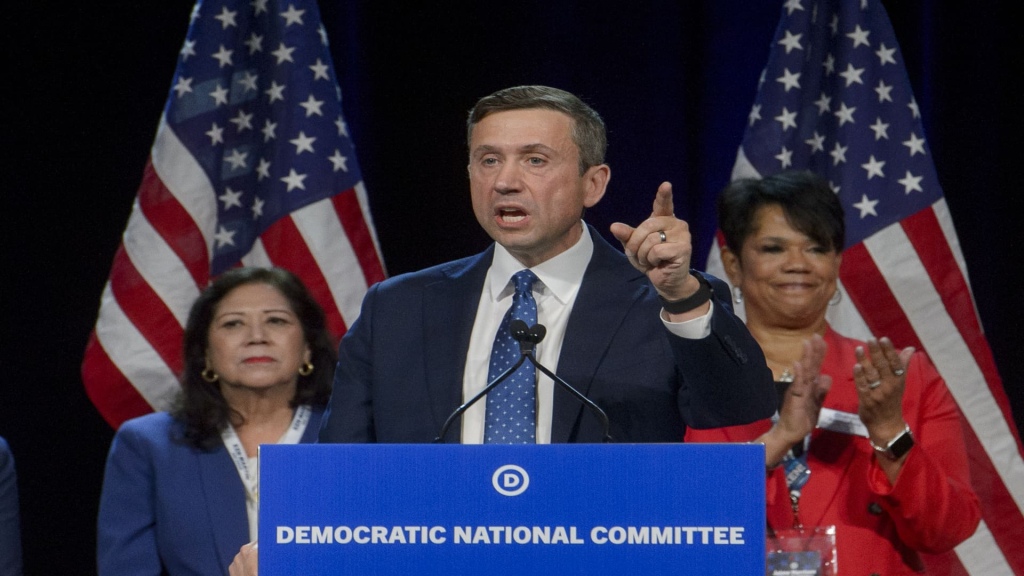The Republican National Committee (RNC) is currently enjoying a significant financial advantage, boasting nearly five times the funds available compared to the Democratic National Committee (DNC). This comes as Democrats regroup after a challenging electoral cycle in 2024.
As of the end of May, the RNC reported a cash reserve of $72 million, a stark contrast to the DNC’s $15 million, as disclosed in recent campaign filings released on Friday.
This disparity of $57 million marks the largest gap between the two parties since at least July 2020, according to insights from Rob Pyers of the California Target Book.
While it remains early in the election cycle, the GOP’s financial edge could provide them with crucial support as they develop their campaign infrastructure ahead of next year’s midterm elections.
Democratic strategist Adrienne Elrod emphasized the urgency for the DNC, stating, “The single most important thing the DNC can and should be doing right now is raising money.”
The financial reports come amid growing internal strife within the DNC, exacerbated by the return of former President Donald Trump to the White House.
In a notable development, leaders from two prominent labor unions recently withdrew their nominations to remain on the committee, representing a setback for DNC Chair Ken Martin.
Additionally, Martin has had to navigate discord surrounding ex-DNC Vice Chair David Hogg’s attempts to challenge existing Democratic incumbents. Hogg resigned earlier this month following backlash related to his stance.
Many Democrats believe that the fundraising shortfall highlights broader issues within the party. “The base of the party and donors alike do not have confidence in the direction of the party,” commented Cooper Teboe, a Democratic strategist in Silicon Valley. He added that the party has not articulated “a positive, inspiring vision.”
The DNC, however, is highlighting a surge in grassroots fundraising, claiming to have raised approximately $40 million in individual contributions since Martin’s appointment as chair in February. This represents a record for that four-month span and is intended to bolster various initiatives, including “developing essential infrastructure across technology, organizing, and state-specific investments for key races.”
Martin stated, “This is only the start, but it’s a record-setting start that allows Democrats to meaningfully invest in every part of the country.”
The current fundraising total for the DNC is roughly twice what it had during the same period in 2017, suggesting there’s still time for recovery.
Elrod pointed out, “The goals Chair Martin has set out — investing in all 50 states and building the state-of-the-art infrastructure necessary to win back the White House in 2028 — are ambitious and necessary, but they can only be achieved by raising money.”
Looking ahead, Teboe believes that Democrats might perform well in next year’s midterms, potentially as a reaction to Trump’s perceived overreach. However, he argues that a new generation of leaders will be essential to steer the party out of its current predicaments.
“Those voices will emerge in the 2028 primary, providing us the opportunity to rebuild a stronger Democratic Party free from the longstanding influence of the old guard that appears disconnected from the motivations of everyday Americans,” he noted.
Meanwhile, the Republicans’ financial advantage follows a 2024 election cycle in which Tesla founder Elon Musk contributed nearly $300 million to support Republican candidates.
Musk’s influx of donations undoubtedly alleviated some pressure on the party’s fundraising mechanisms, although the extent to which the RNC’s expenses would have differed without Musk’s involvement remains uncertain.
Last month, Musk announced intentions to allocate “a lot less” towards political contributions moving forward.


























